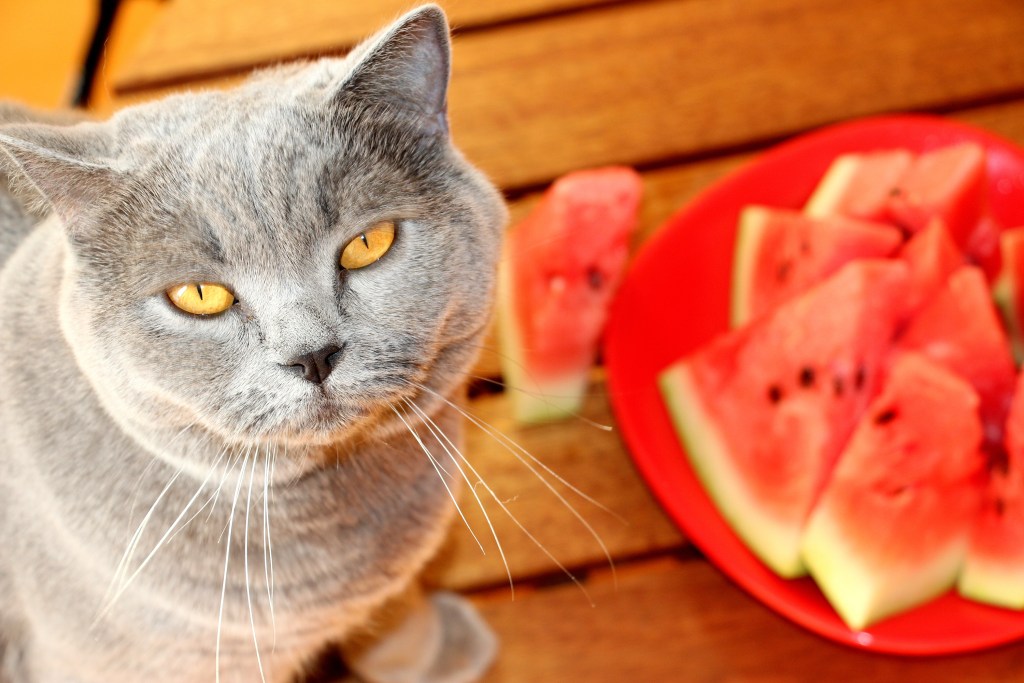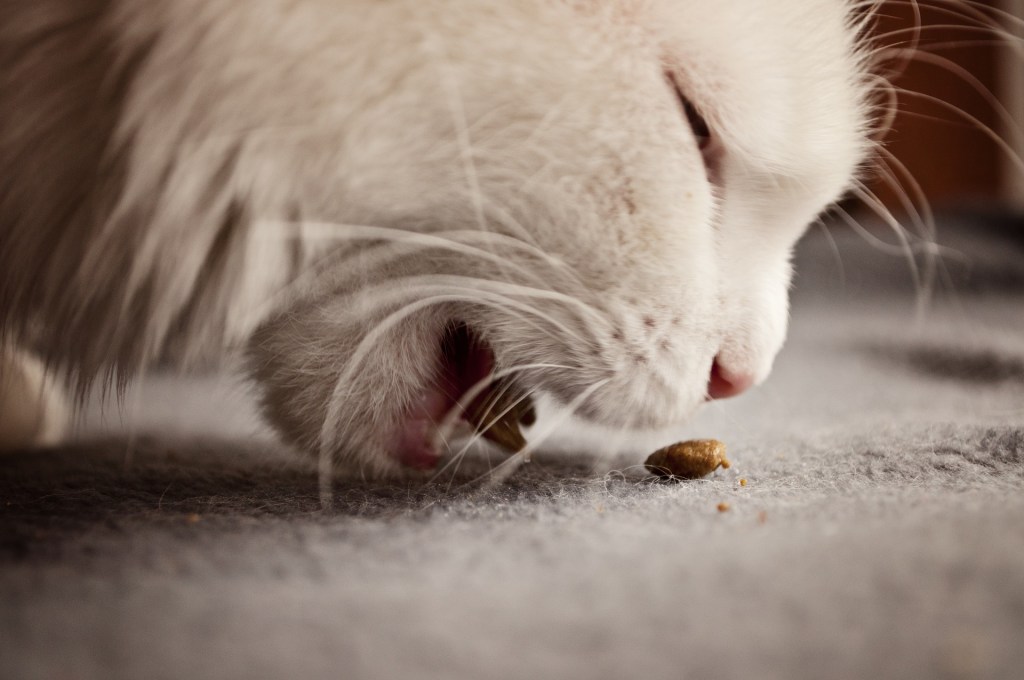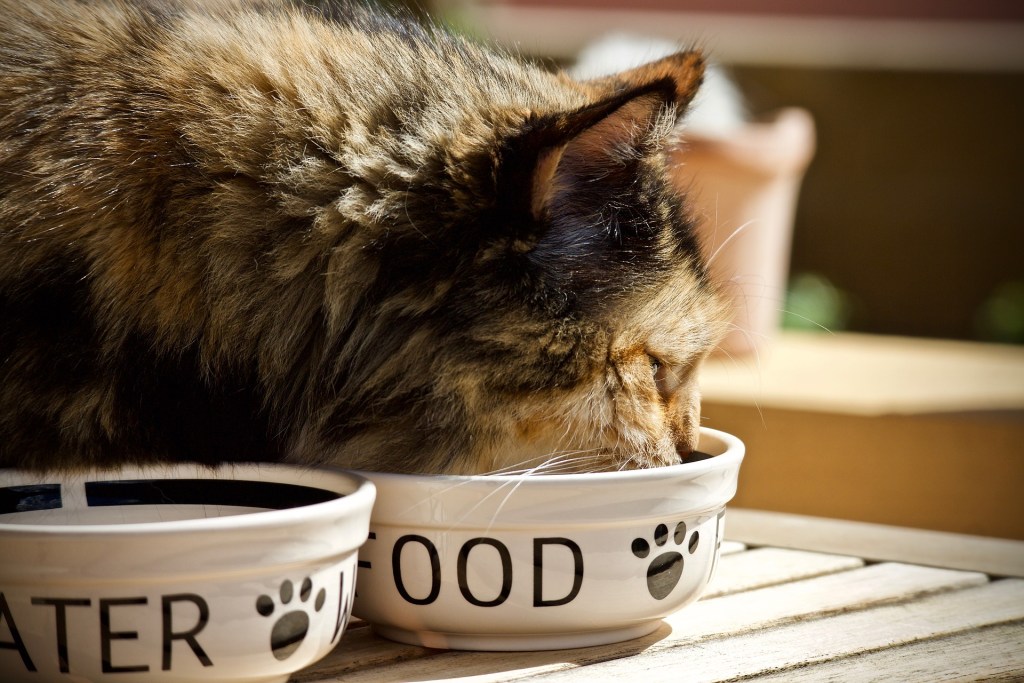Refreshing and tasty, there’s nothing better than a slice of watermelon as a snack or even as part of a meal. You may naturally want to share this snack with your cat, but should you? Cats have quite different digestive systems and nutritional needs than humans do, so the foods that are relatively healthy for us to eat aren’t always the best choice for them. Before you give your cat a treat of watermelon or any other food that’s intended for humans, it’s important to understand how the food might affect your cat and whether it’s a safe choice for him.

Can cats have watermelon?
Watermelon is high in carbohydrates and sugar. Cats don’t need carbohydrates, and watermelon doesn’t provide any nutritional value to your cat. As long as your cat is eating a nutritionally balanced diet, watermelon is completely unnecessary.
That’s not to say your cat can’t have watermelon. Healthy cats can digest small amounts of watermelon without harm. But watermelon shouldn’t be a regular go-to snack.
Because watermelon is high in sugar, you shouldn’t ever feed it to a cat with metabolic issues or diabetes. Watermelon adds extra calories to your cat’s diet, so if he’s overweight, it won’t help with his diet.
Even if your cat is healthy, the extra sugar in the watermelon may cause digestive upset if your cat eats too much. If you do feed your cat watermelon, give him just a little bit as an occasional treat.

Other foods that are better choices for cats
Instead of watermelon, there are plenty of alternatives that are healthier for your cat:
- Canned pumpkin: Just the pumpkin — not the pumpkin pie filling — is high in fiber and can help relieve both constipation and diarrhea. It’s also tasty and makes an appetizing, nutritious food topper.
- Chicken: You can never go wrong with cooked chicken, as long as your cat doesn’t have a chicken allergy. Cooked chicken offers nutrition and protein, and cats love the smell, too. Just make sure that you offer chicken without the skin and don’t cook it in any oils, butter, or spices.
- Salmon: Your cat may also enjoy a piece of cooked salmon. Again, cook it without butter, oils, or spices before giving it to your cat. Salmon is another protein-rich food that’s a more natural addition to your cat’s diet.
- Peas: Peas make another great choice. They’re high in fiber but low in calories, so they’re a winning option for a snack. Peas also include lots of vitamins like K and C, and you can feed sugar snap peas, garden peas, and snow peas fresh or frozen.
- Carrots: Cats can also safely munch on carrots. Carrots have lots of fiber, as well as vitamins and minerals that can contribute to your cat’s health. Avoid feeding raw carrots, which can pose a choking hazard. Instead, feed only cooked or baked carrots prepared without oils or spices, and cut them up into safe bite-sized pieces.

How to help your cat snack healthily
It’s always fun to feed your cat treats, but it’s also important to feed treats in a healthy way.
- Too many treats can lead to extra calories, and if your cat fills up on treats, he might not eat his regular food and lose out on important nutrition. Over the long term, this could lead to nutritional deficiencies that could negatively affect your cat’s health.
- To feed treats safely, dispense them only occasionally and introduce them gradually so you don’t upset your cat’s stomach.
- Watch your cat for signs that the treats may be irritating his digestive system, like diarrhea or vomiting.
- Excessive itching, grooming, and hair loss could also indicate that your cat is allergic to a treat or to his food.
Choose treats that offer nutritional value to your cat and be highly selective with treat feeding if your cat needs to lose weight. If your cat is on a restricted-ingredient diet, then you need to be extra careful in choosing treats that will adhere to the diet’s restrictions. It’s also a good idea to discuss any treats and dietary choices with your vet, particularly if your cat has any health issues or is being treated with medications.
Editors' Recommendations
- Wondering why cats chirp? Fascinating reasons why your cat chirps at birds (and you)
- How to cat-proof your balcony before the unthinkable happens
- There’s a totally normal reason cats throw up after eating grass – here’s why
- When do kittens’ eyes change colors? The answer is so cool – here’s what to know
- Your cat trilling is actually a good thing – here’s why



